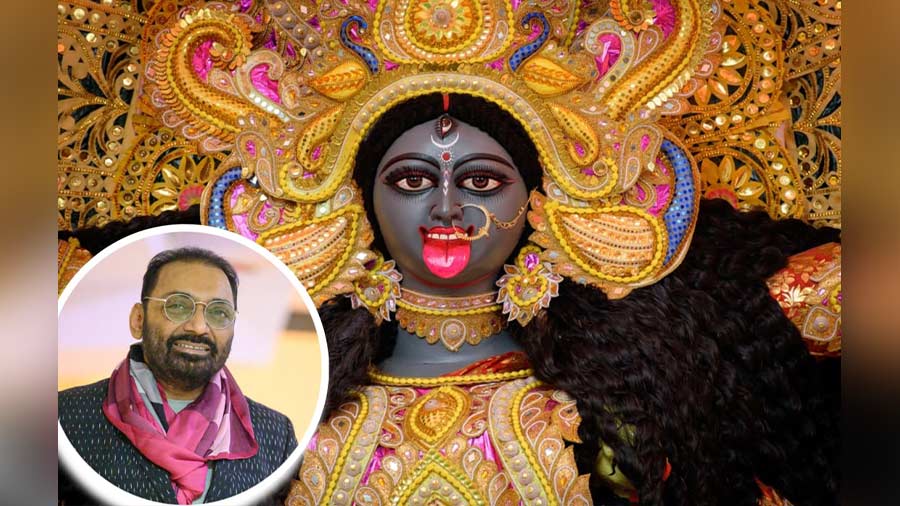Come Kali Puja and loudspeakers in almost neighbourhood ring out Maayer paye joba hoye but Shyamasangeet — songs sung in the praise of goddess Kali — have been a part of Bengali literary tradition and devotional practice since the 13th century.
Shyamasangeet found its footing in Bengal with the rise of Shaktism. Through centuries, the genre has been popularised by numerous poets and songwriters — Ramprasad Sen and Kamalakanta Bhattacharya among others — forming a rich trove of devotional verses dedicated to the supreme power of goddess Kali.
Singer-songwriter Anindya Chatterjee’s tryst with Shyamasangeet began in his childhood. On the occasion of Kali Puja, My Kolkata spoke to him on the contemporary relevance of Shyamasangeet and how they form a major part of Bengal’s musical and cultural heritage.

File photograph
“Whenever we talk about Shyamasangeet, the first name that comes to mind and the one that we have grown up with is Pannalal Bhattacharya. His songs, starting with Amar saadh na mitilo, have left a deep imprint on our collective conscience. It is a song that broadly represents the impact that Shyamasangeet’s essence has had on our culture.”
According to Chatterjee, Ramprasad Sen, the eighteenth century poet, who popularised the genre, sprinkled all of his devotional verses with a unique outlook on life.
“There is an extremely layered worldview in Ramprasad Sen’s poetry. Take for instance, songs like Dosh karo noy go Maa and Boshon poro Maa,” Chatterjee said.
Ramprasad and his pioneering work are an important part of contemporary and modern Bengali songs.
Commenting on its contemporary relevance, Chaterjee said: “If folk and baul can be treated in a contemporary way and fused with other genres, why can’t we consider the same with Shyamasangeet? The songs are blessed with a perennial sense of Bangaliyana with major contemporary and religious significance and can very well be translated into our current cultural landscape.”
“The concept of Kali has always been a subject of global academic intrigue and dissection. A fiercely feminist symbol, the figure of Kali represents an independent force and power that remains uncensored and untethered. It is an ubiquitous topic in numerous academic circles around the world and Shyamasangeet forms a major part of the academic narrative,” added Anindya.
